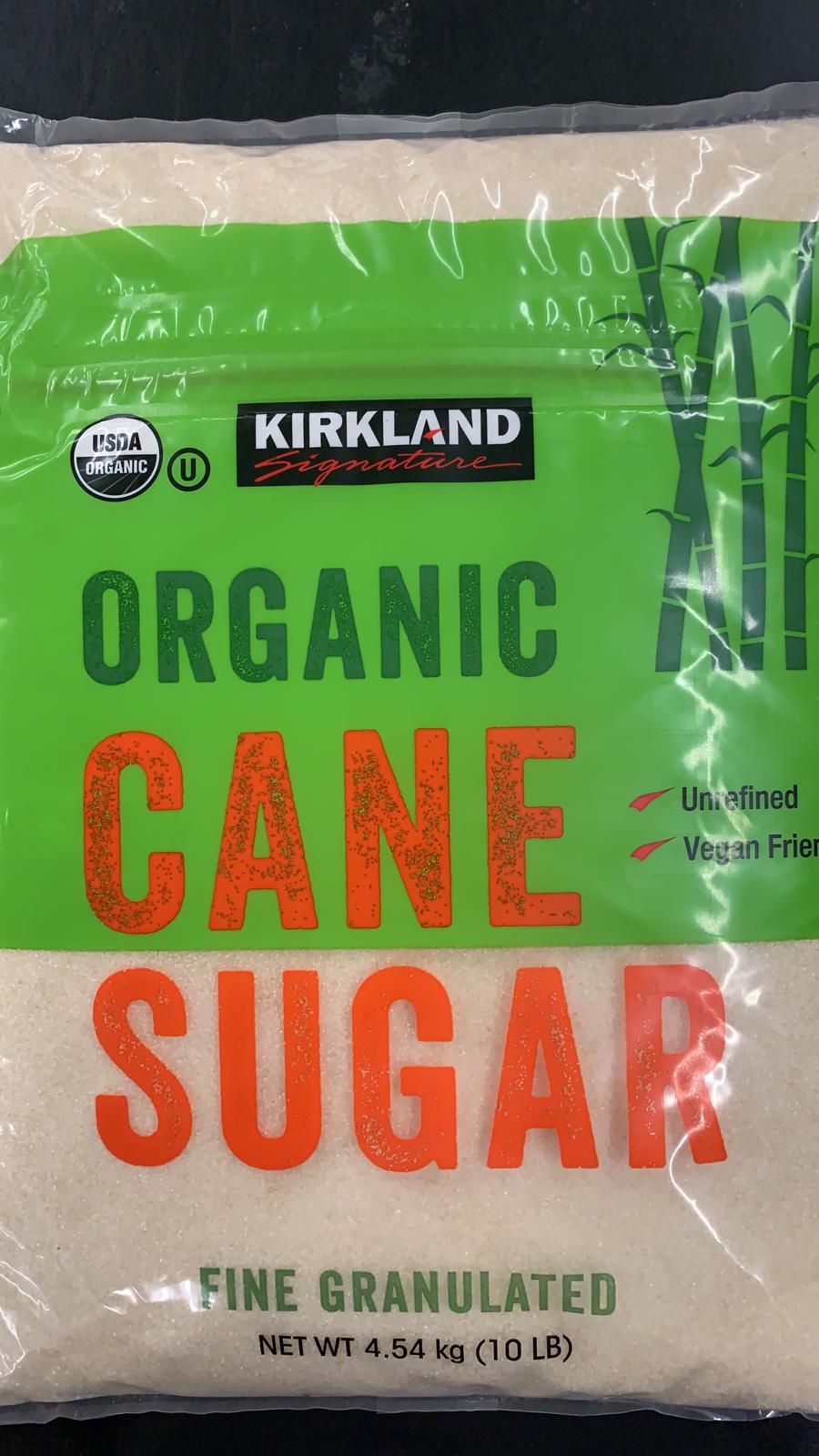An In-depth Introduction of the Health and Economic Ramifications of Walking Stick Sugar Handling on Neighborhood Areas
Cane sugar handling plays a critical function in forming the financial landscape of regional neighborhoods, supplying employment possibility and promoting secondary sectors. Nonetheless, the health implications connected with high sugar intake can not be forgotten, as they add to rising prices of weight problems and diabetes. This nuanced dynamic welcomes a critical exam of exactly how communities can maximize financial gains while attending to the pushing health and wellness difficulties they deal with. The exploration of sustainable practices and academic initiatives might simply hold the secret to integrating these conflicting passions. What approaches might areas apply to attain this equilibrium?
Economic Benefits of Cane Sugar Processing
Walking cane sugar handling supplies substantial financial advantages that expand past the instant agricultural sector. The farming and processing of sugarcane develop various job opportunities, from farming to production and circulation. This employment generation not just supports neighborhood economic situations yet likewise cultivates community growth by supplying stable revenue sources for family members.
In addition, the sugar market boosts ancillary services, consisting of transportation, tools supply, and packaging services (Cane Sugar Processing). As these sectors expand, they add to an extra durable economic structure, boosting overall area durability. The export capacity of refined cane sugar additionally magnifies financial advantages, positioning areas as competitive gamers in global markets
Investment in modern-day processing facilities can result in raised productivity and efficiency, thereby minimizing waste and maximizing resource usage. This change not just profits the neighborhood economic situation however likewise supports sustainability initiatives by decreasing environmental impacts.
Moreover, the revenue generated from cane sugar processing can be reinvested in regional framework, education and learning, and medical care, advertising holistic community growth. In general, the economic benefits of walking stick sugar processing are diverse, offering a foundation for withstanding prosperity in farming regions.
Health Risks Related To Sugar Consumption
Too much sugar intake postures considerable health risks that warrant major attention. High intake of sugarcoated, specifically from refined beverages and foods, has been linked to countless wellness issues. Among one of the most pressing concerns is excessive weight, as sugary diet plans add to an increased caloric intake without providing important nutrients. This extra can cause metabolic conditions, consisting of kind 2 diabetic issues, which has actually come to be progressively prevalent in both grownups and youngsters - Cane Sugar Processing.
Moreover, high sugar intake is connected with cardiovascular illness. Raised blood glucose degrees can result in insulin resistance, a precursor to various heart-related issues. Furthermore, sugar can have detrimental impacts on oral wellness, resulting in dental caries and gum condition, as germs in the mouth grow on sugar, producing acids that wear down tooth enamel.
Furthermore, arising study suggests a potential web link between high sugar usage and psychological wellness disorders, such as depression and anxiousness. As neighborhoods face these health risks, it becomes necessary to promote recognition and urge healthier nutritional choices. Attending to sugar intake is critical not only for specific wellness yet also for the general health of neighborhood areas, emphasizing the requirement for thorough public wellness strategies.
Environmental Influences of Sugar Production
Often ignored in conversations concerning sugar's implications is the significant environmental impact of sugar production. The growing of sugarcane commonly demands substantial land usage, causing deforestation, loss of biodiversity, and disruption of neighborhood ecosystems. The conversion of forests and marshes right into sugar vineyards can cause environment damage, threatening numerous varieties and modifying eco-friendly equilibrium.
Additionally, sugar manufacturing is resource-intensive, consuming significant amounts of water for watering. This can cause exhaustion of regional water sources, detrimentally impacting both farming techniques and neighborhood access to tidy water. In addition, using chemical fertilizers and chemicals in sugarcane farming can add to soil degradation and water air pollution, as overflow from these chemicals gets in neighboring rivers my response and lakes, influencing aquatic life and human wellness.
The environmental footprint reaches the handling phase, where power usage and waste generation additional aggravate environmental concerns. Air contamination from shedding sugarcane fields, in addition to greenhouse gas discharges, add to environment change. Thus, the environmental ramifications of sugar production warrant significant consideration, prompting stakeholders to adopt even more sustainable techniques to mitigate these damaging impacts on neighborhood environments and neighborhoods.
Job Production and Community Development
The environmental challenges posed by sugar manufacturing are frequently reversed by its potential for economic benefits, especially in job production and community advancement. The walking stick sugar industry serves as a substantial resource of work in numerous backwoods, offering tasks throughout various ability degrees, from farming labor to handling and circulation duties. This work not just supports private family members yet also adds to the overall economic vitality of regional neighborhoods.
Moreover, the establishment of sugar processing facilities stimulates supplementary organizations, such as transportation solutions, tools supply, and upkeep companies. As these services prosper, they develop extra work and bolster local economies. The revenue produced from the sugar market also leads to increased tax profits, which can be reinvested into social work such as education, health care, and infrastructure growth.
Additionally, the sugar industry usually takes part in area advancement campaigns, such as supporting neighborhood colleges and health and wellness programs, thus boosting the quality of life for homeowners. By promoting strong neighborhood connections and promoting economic development, the walking cane sugar processing field plays a crucial role in uplifting local populaces, making it an important element of sustainable growth strategies in sugar-producing areas.
Harmonizing Health And Wellness and Economic Development
In have a peek at these guys navigating the intricacies of cane sugar processing, an essential difficulty depends on balancing health and wellness factors to consider with economic growth. The sugar industry substantially adds to local economic situations by producing jobs, promoting associated sectors, and enhancing tax obligation earnings. Nonetheless, the health and wellness effects connected with excessive sugar usage can bring about chronic diseases such as excessive weight, diabetes, and cardio issues, which can concern public health and wellness systems and reduce workforce performance.

In addition, regulatory frameworks can play a pivotal role in directing market techniques towards more health-conscious and lasting methods. By fostering partnership in between government bodies, health organizations, and the sugar industry, neighborhoods can navigate the dichotomy of health and wellness and financial development, ensuring that the benefits of walking stick sugar processing are equitably shared while prioritizing public health and wellness.
Verdict
To conclude, the handling of walking stick sugar offers both significant economic benefits and remarkable wellness threats for neighborhood neighborhoods. While it cultivates task development and promotes regional advancement, the connected health and wellness issues, particularly regarding obesity and diabetes, necessitate a mindful harmonizing act. By advertising liable usage and investing in neighborhood education and sustainable practices, it is feasible to optimize financial benefits while reducing negative health effects, consequently making sure a much healthier future for regional populations.
In addition, sugar can have damaging effects on dental wellness, resulting in cavities and gum condition, as germs in the mouth flourish on sugar, producing acids that deteriorate tooth enamel.
Attending to sugar consumption is critical not only for private health however additionally for the total wellness of neighborhood neighborhoods, stressing the demand for detailed public health methods.
Frequently ignored in discussions about sugar's ramifications is the substantial environmental influence of sugar manufacturing. The health ramifications linked with excessive sugar usage can lead to chronic illness such as excessive weight, diabetes mellitus, and cardio concerns, which visit site can burden public health and wellness systems and diminish workforce performance.
